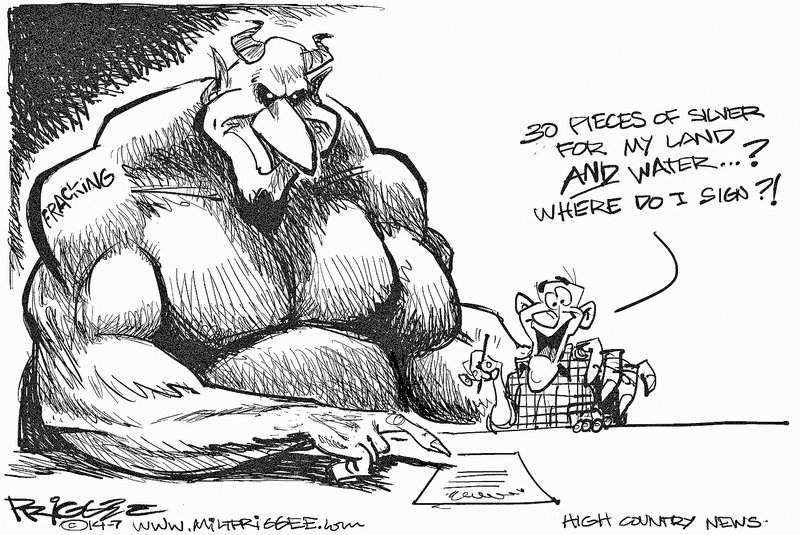Imagine this scene: fierce, gigantic monsters, aliens, robots, transformers and invaders of recent horror movie fame standing in a line of self-defense opposite one small, frail gray-haired woman in her 80s, holding nothing in her hand but her oxygen tank. She is standing firmly, just staring at them much like that Chinese student who stood alone in front of tanks in Tiananmen Square and became a global symbol of defiance. That kind of standoff is how I will always think of her.
Throughout this formidable character's career, her detractors circled her, they whispered innuendo about her, they tried to intimidate her, they tried to ignore her and they calculated new strategies. (An excellent article found online, "Nemesis of the Chemical Giants," describes the battle lines well.) From experience they knew it would not be wise to attack her, at least not obviously or often in public, else she might become a headline martyr. Having learned well the lesson of Rachel Carson and the notoriety of her scientific work, they knew it was best to not raise too much awareness about the risks and dangers of their monstrous toxic behaviors because blame can get expensive.
This month, her disparagers got a moment of respite when, after decades of exposing them, their adversary told those she had mentored, nurtured, informed, loved and led that the battle was now all theirs. Dr. Theo Colborn, the environmental health analyst you probably have never heard of, died Dec. 14 at age 87. But, fortunately, the chemical and fossil fuel industries' rest will be brief because that little woman left behind a wealth of information with which to arm grateful researchers and activists ready to pick up her torch.
Colborn wrote "Our Stolen Future" in 1996 and in 2003 founded The Endocrine Disruption Exchange (endocrinedisruption.org) "dedicated to compiling and disseminating the scientific evidence on the health and environmental problems caused by low-level exposure to chemicals that interfere with development and function, called endocrine disruptors."
We live in a man-made chemical soup, which covers the globe, affecting the ecosystems surrounding us and changing our internal human chemistry, health and even our genetic legacies to future generations. Yet we rarely see the connections between toxic byproducts from fossil fuels and what, for example, practices like fracking the earth to release gas or oil have to do with the stuff human hormones are made of. But, some of the known chemicals used in fossil fuel extraction are endocrine disruptors and are used in large concentrations.
Just last month, Colborn, who worked until the day she died, wrote that, "As signaling chemicals, hormones keep cells and tissues alive, control fertilization of the egg, initiate the construction of the baby in the womb and how it will function, mature, and senesce [grow old]. Hormones function in concentrations of parts per billion, per trillion, and less."
She knew the consequences of hormonal damage, saying, "In the U.S. alone, almost half the individuals born today will become diabetic and/or obese; one of every 88 babies born has autism spectrum disorder. For boys it's one in 54. The cost of treatment and care for these problems along with infertility, Parkinson's and Alzheimer's disorders, and hormone driven cancers ... are in-estimable because they are increasing so rapidly. All of these disorders have been traced back to prenatal, early life and/or adult exposure to chemicals derived from these oil and gas condensates that interfere with the normal function of the endocrine system that assures species integrity and perpetuity. Before the 1930s these ailments were rare." The online video, "Unsafe: The Truth Behind Everyday Chemicals," explains our daily exposures very simply and clearly.
Colborn was the Rachel Carson of our time, and although unknown to the general population, she was recognized with four different organizations' Carson awards, as well as the Blue Planet Prize from Japan, which is considered the Nobel Prize for environmental issues, and Sweden's Goteborg Prize for Environment and Sustainability. Among many other awards, Time magazine named her a Global Environmental Hero, and the U.N. Environmental Programme awarded her its Women Leadership in the Environment Award.
Our great mistake has been in not heeding either Carson or Colborn. We cannot race our way to any cures as long as we are denying disease causes, many of which are right in front of our faces. To date, with 80,000 to 100,000 synthetic chemicals in use, not one has been thoroughly tested first for its endocrine disrupting effects.
FRAN ALEXANDER IS A FAYETTEVILLE RESIDENT WITH A LONGSTANDING INTEREST IN THE ENVIRONMENT AND AN OPINION ON ALMOST ANYTHING ELSE.
Commentary on 12/28/2014
